- Home
- Eco Club
BACKGROUND & NEED
INTRODUCTION
ECO CLUB MANUAL
PO – CMTE – MOM – VOL
CALENDAR – CAMPAIGNS
CONTACT & LINKAGES
DOWNLOADS
PHOTO GALLERY
AWARD & ACCOLADES
OBJECTIVES & IMPLEMENTATION PLAN
EVENT CALENDER
REPORTS
Background & Need
“One person can spark an idea, but a group can start a movement.”
An Eco Club brings together individuals who are passionate about protecting the environment
and transforming this passion into collective action. By working as a team, we can achieve far more than what a single person could — through collaboration, creativity, and community spirit.
Eco Clubs are spaces where ideas grow, friendships form, and impactful activities take shape. They provide exciting opportunities to explore the theme of “Our Environment” through innovative projects, campaigns, and interactive learning.
Why Join or Start an Eco Club?
- To raise environmental awareness among students and the community
- To organize fun, educational, and creative activities like tree plantations, clean-up drives,
nature walks, quizzes, eco-crafts, and competitions - To promote habits of sustainability, waste reduction, and eco-friendly living
- To engage with local environmental issues and work toward meaningful solutions
EEAT (Environment Education, Awareness & Training) Scheme
The EEAT Scheme is a Central Government initiative launched during the 6th Five-Year Plan (1983-84). It plays a vital role in building environmental consciousness across all age groups and
communities.
Key Objectives of EEAT Scheme
- Promote environmental awareness among all sections of society
- Spread environment education beyond formal classrooms
- Support the creation of educational materials and teaching aids
- Encourage training and manpower development for environmental fields
- Involve NGOs, media, and civil society in environment-related awareness
- Use engaging formats like films, drama, seminars, posters, and workshops
- Mobilize people’s active participation in preservation and conservation
History and Need for Environmental Education in India: A Simplified Overview
In 1991, well-known environmental lawyer Shri M.C. Mehta filed a case (Writ Petition No. 860/1991) in the Supreme Court of India asking for public interest directions to raise
environmental awareness across the country. He requested:
- That cinema halls show environment-related slides before movies.
- That All India Radio broadcast environmental awareness messages.
- That environmental education be made a compulsory subject in schools and colleges.
Role of the Supreme Court in Promoting Environmental Education- Supreme Court Orders: Step-by-Step Development
22 November 1991: The Supreme Court issued its first order directing authorities to take steps toward spreading environmental education.
18 December 2003: The Court emphasized that environmental education must become a compulsory subject at all levels — from primary school to college. The NCERT (National Council of Educational Research and Training) was directed to prepare a model syllabus.
The UGC (University Grants Commission) was also asked to introduce environmental studies in all universities.
All State Governments and Education Boards were ordered to enforce environmental education up to intermediate level in a graded and structured way.
13 July 2004: The Court ordered that the NCERT syllabus (for Classes I to XII) must be adopted by every state across India.
NCERT was also appointed as the nodal agency to supervise and monitor implementation.
03 December 2010: NCERT clarified that environmental education does not need to be a separate subject, but it must be integrated into existing subjects (science, social science, language, math, etc.). This was accepted by the Supreme Court, effectively closing the case. Compliance with these Supreme Court directives is mandatory for all states and Union Territories. It remains one of the few truly nationwide educational mandates in India.
NATIONAL ENVIRONMENT AWARENESS CAMPAIGN (NEAC):
The National Environment Awareness Campaign (NEAC) was started in 1986 to increase awareness about environmental issues across the country. It is a special campaign that uses different ways of communication—like posters, radio, street plays, and other creative activities—to spread messages about protecting the environment. The campaign supports many kinds of organizations such as NGOs, schools, colleges, universities, youth and women groups, government departments, and even army units by giving them small amounts of financial help. These groups use the funds to organize various awareness programs like seminars, workshops, rallies, training camps, street theatre, painting and essay competitions, puppet shows, and more. After these awareness events, people are encouraged to take real action, like planting trees, cleaning rivers and ponds, and managing waste at home. The NEAC focuses on all sections of society, including students, youth, teachers, farmers, tribal communities, and professionals. The entire program is managed through 28 Regional Resource Agencies (RRAs) across different states and regions of India. Every year, during May or June, applications are invited through newspapers for groups who wish to participate in the campaign.
More information can be collected from the respective RRA of the area.
GLOBAL LEARNING AND OBSERVATIONS TO BENEFIT THE ENVIRONMENT (GLOBE)
The GLOBE Program (Global Learning and Observations to Benefit the Environment) is an international science and education initiative that encourages students to learn about the environment by actively participating in experiments and observations. India joined this program in August 2000. It brings together students, teachers, and scientists from around the world to share data and learn from one another. The program is mainly designed for school children and helps them learn science in a practical and engaging way while understanding environmental issues.
Why Environmental Education Matters
- Increases awareness about climate change, pollution, and conservation.
- Helps young learners develop problem-solving and critical thinking skills.
- Encourages responsible behavior and sustainable living practices.
- Builds a generation of informed citizens who can actively protect and conserve nature.
INTRODUCTION
Environmental consciousness is a critical component of sustainable development, particularly in urban settings where ecological balance is continuously challenged. Recognizing this imperative, the Ashtavakra Institute of Rehabilitation Sciences & Research (AIRSR) has instituted the AIRSR Eco-Club, functioning under the aegis of the Department of Environment, Government of NCT of Delhi. This initiative aligns with the broader mandate of fostering ecological awareness, environmental stewardship, and sustainable practices across Delhi NCR. The Department of Environment serves as the principal body overseeing environmental quality enhancement through systematic assessment, monitoring, and conservation-oriented interventions.
To drive impactful environmental education and community engagement, the AIRSR Eco-Club follows a structured approach that integrates awareness campaigns, conservation strategies, and experiential learning modules. As part of its commitment to promoting sustainable environmental practices, the institute collaborates with the National Green Corps (NGC), a nationwide program facilitated by the Department of Environment, Government of NCT of Delhi. The program extends a nominal grant of ₹20,000 to affiliated institutions, enabling the execution of eco-conscious initiatives among students.
Collective efforts yield greater impact than isolated actions; thus, the AIRSR Eco-Club operates as a dynamic platform for discussion, idea generation, and collaborative environmental action. The club provides an avenue for students to engage in hands-on ecological activities and contribute meaningfully to environmental sustainability. The primary objectives include fostering awareness of ecological interdependencies, promoting scientific inquiry into environmental challenges, and actively engaging students in conservation-driven initiatives. Through educational excursions, interactive demonstrations, and research-based projects, the club aims to instill a proactive approach toward environmental preservation.
By mobilizing young minds and equipping them with the knowledge and skills necessary for ecological advocacy, the AIRSR Eco-Club aspires to cultivate a generation that is environmentally responsible, scientifically informed, and socially committed to sustaining the planet for future generations.
GALLERY
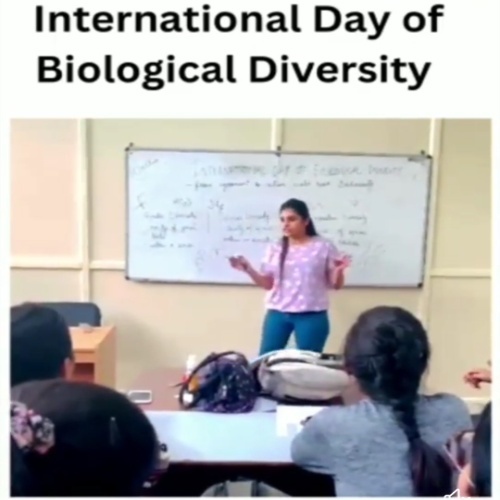
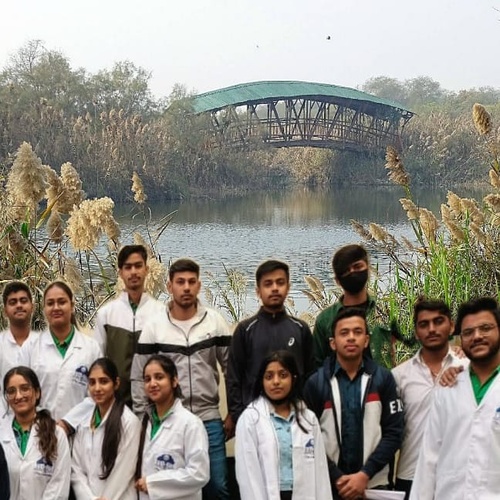
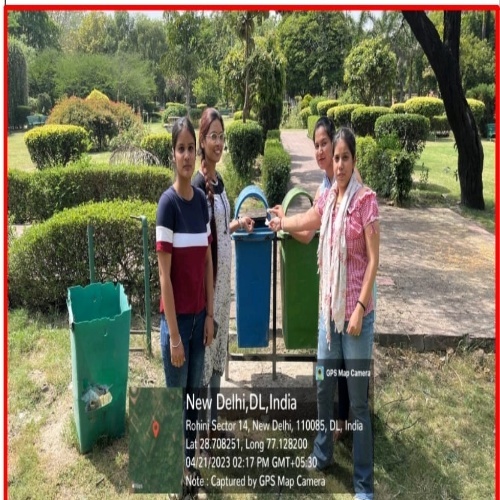
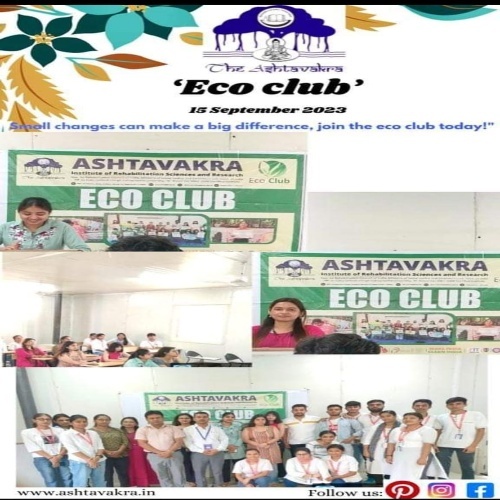

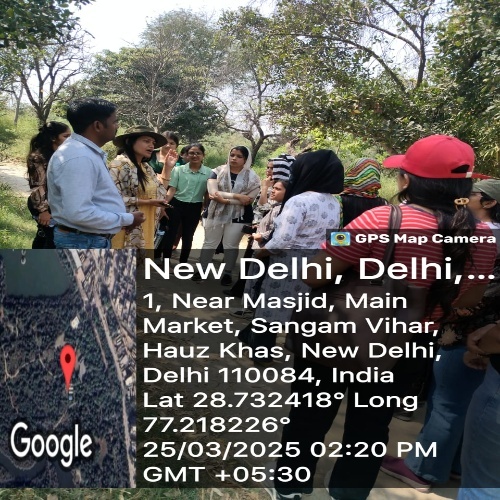
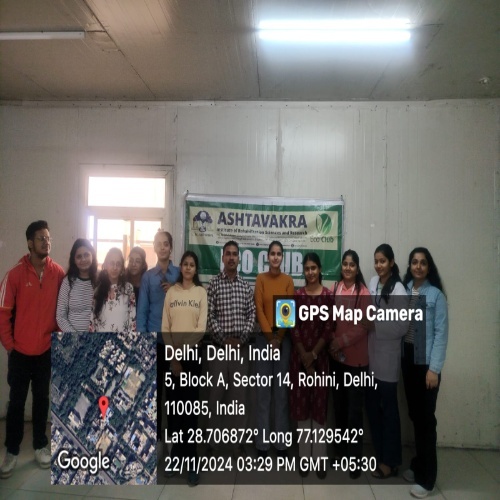
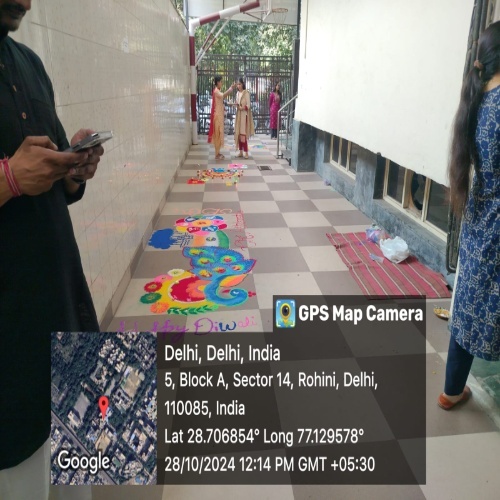
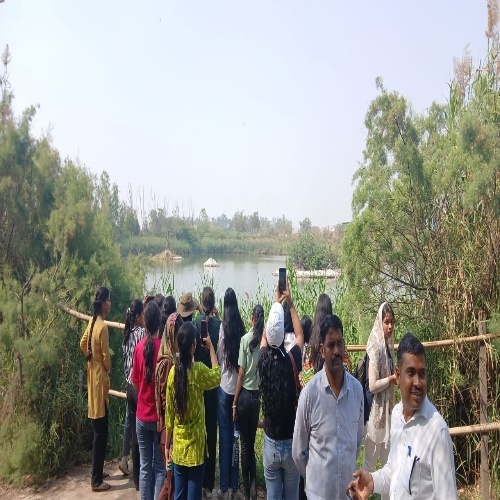


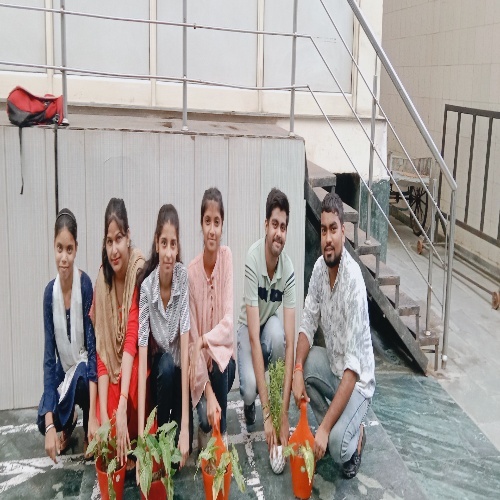
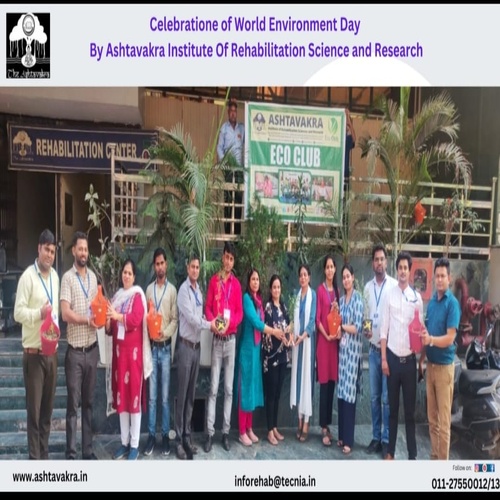
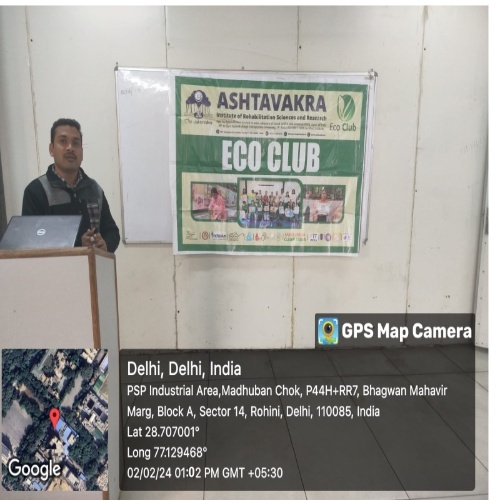
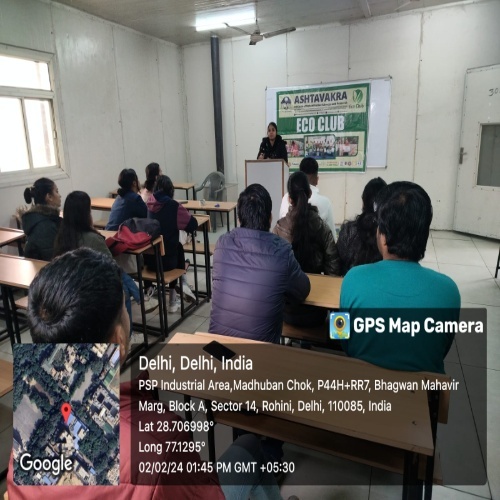
OBJECTIVES
The Environmental Education, Awareness & Training (EEAT) Scheme is a centrally initiated program designed to instill ecological consciousness and sustainable practices across diverse societal segments. Introduced in 1983-84 during the 6th Five-Year Plan, the scheme has evolved over time, adopting various strategic approaches to environmental education and advocacy. The key objectives include:
- Fostering Ecological Awareness – To cultivate environmental consciousness across all demographics, ensuring a collective responsibility toward sustainability.
- Enhancing Non – Formal Environmental Education – To integrate environmental learning into informal education systems, engaging communities beyond structured curricula.
- Developing Educational Resources – To create and distribute instructional materials, multimedia tools, and digital aids for enriching formal environmental education.
- Strengthening Institutional Collaborations – To leverage academic, scientific, and research institutions in advancing environmental studies and sustainability initiatives.
- Capacity Building & Training – To develop skilled human resources by providing structured training programs on environmental conservation, policy frameworks, and ecological ethics.
- Encouraging Multi – Sectorial Participation – To involve NGOs, civil societies, and media organizations in disseminating environmental knowledge and fostering public engagement.
- Utilizing Multi – Platform Outreach – To employ diverse media formats, including films, digital campaigns, performing arts, publications, and interactive events, to amplify environmental messaging.
- Advocating Sustainable Practices – To instill eco-friendly habits through workshops, awareness drives, and behavioral interventions at grassroots levels.
- Promoting Community – Led Conservation – To mobilize local communities in active participation for ecological preservation, biodiversity protection, and resource conservation.
- Integrating Policy & Public Engagement – To align environmental education initiatives with governmental policies, ensuring long-term sustainability through legislative support and community involvement.
IMPLEMENTATION PLAN
To achieve the outlined objectives, the following structured programs and initiatives have been implemented over the years, ensuring widespread engagement, capacity building, and environmental advocacy:
- National Environmental Awareness Campaign (NEAC) – A flagship initiative aimed at fostering ecological consciousness through targeted outreach programs, public engagement, and awareness drives.
- National Green Corps (NGC) / Eco Clubs – A nationwide movement encouraging students and youth to actively participate in environmental conservation efforts through school and community-based eco clubs.
- Educational Seminars, Symposia & Workshops – Knowledge-sharing platforms that bring together experts, educators, and stakeholders to discuss contemporary environmental issues and sustainable solutions.
- Capacity Building & Training Programs – Skill-enhancement sessions designed for educators, volunteers, and community leaders to strengthen environmental education and advocacy initiatives.
- Multi-Platform Awareness Campaigns – Utilization of diverse media formats such as digital content, documentaries, advertisements, and interactive forums to spread environmental messages effectively.
- Community Engagement through Competitions & Activities – Organizing quizzes, essay writing, debates, poster-making, slogan-writing contests, and rallies to engage youth in creative environmental discourse.
- Green Action Campaigns & Sustainability Drives – Hands-on activities such as tree plantations, clean-up drives, biodiversity conservation efforts, and climate action initiatives.
Environmental education, awareness, and training are important in promoting active public participation in environmental conservation, protection, and sustainable resource management—key elements for achieving long-term sustainability.
The ministry emphasizes the importance of non-formal environmental education and strives to raise awareness across all sectors of society by utilizing both traditional and modern communication platforms.
In alignment with this vision, the AIRSR Eco-Club (National Green Corps) actively implements initiatives to promote environmental consciousness and community engagement through structured programs and outreach activities.
# Extracted from ECO CLUB MANUAL (FOR ECO CLUB INCHARGES) issued by State Council of Educational Research and Training; Varun Marg, Defence Colony, New Delhi ; Chapter1: ECO-CLUB,
EVENT CALENDER
| 2024-25 Eco Club Calendar | |
| 2023-24 Eco Club Calendar | |
| 2022-23 Eco Club Calendar | |
| 2021-22 Eco Club Calendar | |
| 2020- 21 Eco club Report |
- 2024-25
- 2023-24
- 2022-23
- 2021-22
- 2020-21
- Webpage Incharge : Mr. Sandeep Tiwari

